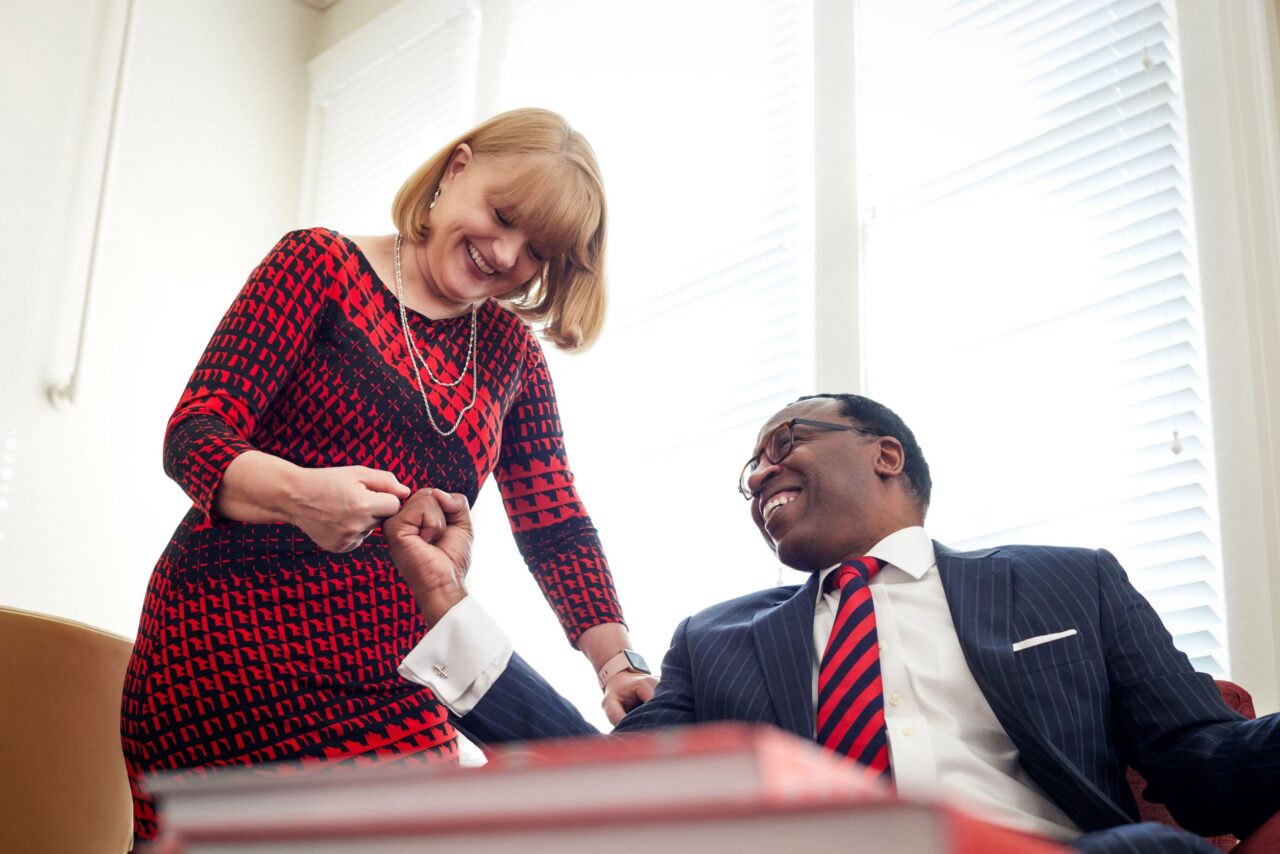“I couldn’t let him die:” Lindsay’s heroic quest to save her coworker’s life

He didn’t know it yet, but the woman who would save Kevin Howell’s life was sitting in the very next room. Kevin’s kidneys had failed, and his chances of survival were hovering in the single digits. But he didn’t know that yet, either.
Sitting at his desk at NC State University, Kevin just knew something didn’t feel right. He was nauseated, fatigued, and he had a metallic taste in his mouth that wouldn’t go away.
“I knew I needed to get to the hospital,” he said. “I was trying to gather my strength to walk through that door so my colleagues wouldn’t see how sick I was.”
On the other side of his office wall, his colleague of five years, Lindsay Recchie, had no idea anything was wrong.
Kevin drove to UNC Hospital, where his doctor did blood work and returned with devastating news.
“Dr. Falk looked at me and said, ‘Your kidneys have failed,’” Kevin said. “’Both of them.’”
The lab results painted a stark picture: Kevin’s creatinine—a measure of kidney function—was 28, exactly 20 times the normal level.
“That day, reality hit me hard,” he said. “I didn’t know if I had a future with my wife and two daughters. I didn’t know if I was going to live or die.”
Kevin was admitted to the hospital, but word of his diagnosis soon traveled back to his colleagues at NC State. When Lindsay learned Kevin needed a kidney transplant, she was shocked. He was one of the healthiest people she knew.
It wasn’t until he returned to work after starting dialysis treatments that the severity of the situation sunk in for Lindsay.
“We had worked together for five years at that point, and he has always been such an upbeat, positive person. Never says a bad word about anything. Always looks on the bright side. But when he came in that week, he was a defeated man,” she said. “He just had given up.”
His shock had given way to depression. He felt sure that somehow, the kidney failure was his fault, and he couldn’t picture a future where he was healthy and thriving again.
Kevin’s wife, Aleta, had begun searching for a donor, but they hadn’t yet found a match, and there were no guarantees they would. Their best bet was a living donor, someone in good health who shared Kevin’s blood type of O-positive.
Before Kevin’s diagnosis, Lindsay didn’t even know living donation was possible, let alone what her blood type was. She logged into her medical charts and tracked down records from an old knee surgery.
“It said O-positive, and I just got chills,” she said. “When I saw O-positive, I was like, ‘This is supposed to work.’ I just knew. I thought, ‘This is what I’m going to do. I’m going to give it everything I have. This is going to work.’”
She called Kevin’s transplant coordinator, who asked her to come to the hospital for a few more tests and questions about her medical history. That Tuesday at work, she received a call with the results. She was a perfect match.
Lindsay ran to Kevin’s office in tears. “’They called!’” she yelled. “This is happening.”
At first, Kevin was in disbelief.
“I couldn’t comprehend that on the other side of that wall was a young lady sitting at her desk and she was my perfect match,” he said. “I felt like, ‘What did I do to deserve a kidney?’ I was shocked—shocked that a colleague would be willing to do something like that for me.”
For Lindsay, though, it was a pretty simple calculation.
“Thirteen people die a day waiting for a kidney,” she said. “I couldn’t let Kevin be one of them.”
In the United States, more than 3,000 people are added to the kidney waiting list each month. Most people wait almost four years for a transplant, and many die or become too sick for surgery before a kidney becomes available.
If Lindsay had anything to do with it, that wasn’t going to happen to Kevin. She continued working with the transplant team, who assessed her physical and emotional readiness for surgery.
Meanwhile, Kevin and Aleta prepared for the impending change in their lives.







